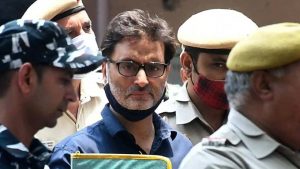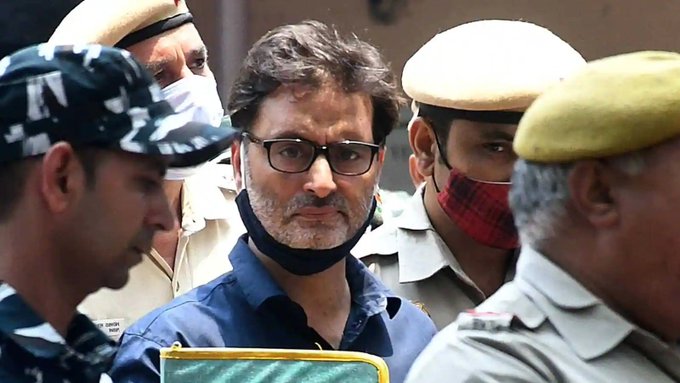SRINAGAR: Jammu & Kashmir Liberation Front (JKLF) chief Yasin Malik has told the Delhi High Court that after meeting Hafiz Saeed in Pakistan in 2006, he personally briefed then Prime Minister Manmohan Singh and then National Security Advisor N.K. Narayanan, yet the same meeting was later twisted to brand him a terrorist.
Malik, who is serving a life term in a terror-funding case, filed an affidavit claiming the meeting with Saeed and other leaders took place at the request of India’s Intelligence Bureau (IB) during his Pakistan visit for earthquake relief work.
“Despite working to strengthen the peace table, my meeting was later distorted to brand me a terrorist,” Malik said, calling it a case of “classic betrayal.”
He alleged that after the abrogation of Article 370 and 35A, the 2006 meeting was shown out of context to justify invoking UAPA against him, even though he had carried out the talks openly and reported back to India’s top leadership.
Malik also declared in his affidavit that he is prepared to face the death penalty if imposed.
“If my death finally gives respite to some, let it be so. I shall go with a smile but with pride and honour on my face,” he wrote, likening himself to Kashmiri separatist leader Maqbool Bhat, who was executed in 1984. He described death as the “ultimate endgame” of his struggle and quoted Shakespeare: “Be absolute for death; for either death or life shall be the sweeter.”
The affidavit comes as the Delhi High Court hears the National Investigation Agency’s (NIA) appeal to enhance Malik’s life term to a death sentence in a 2017 terror-funding case. The bench has asked Malik to file his reply by November 10.
In 2022, Malik was sentenced to life imprisonment after pleading guilty under the Unlawful Activities (Prevention) Act (UAPA). The trial court had held that his case did not qualify as “rarest of rare” for awarding the death penalty.
The NIA’s case accused Malik and others, including Hafiz Saeed, Syed Salahuddin, and Shabbir Shah, of conspiring with Pakistan-based groups to fuel unrest in Kashmir. Meanwhile, a UAPA tribunal recently extended the ban on JKLF for another five years, saying no tolerance can be shown to organisations that advocate secessionism.


